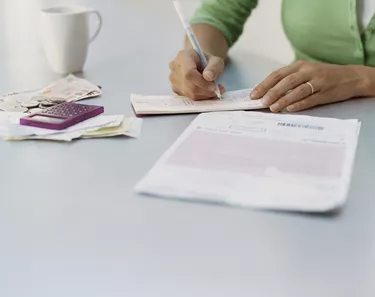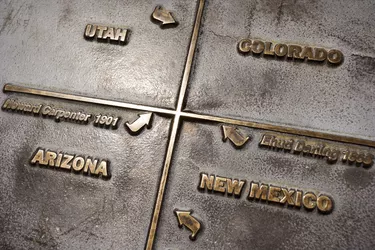
You do not have to pay back money that you received in unemployment benefits — unless you received benefits despite being ineligible, or you received more money than you should have. In such cases, your state's unemployment compensation agency may require you to repay the extra money. You may also have to pay penalties.
State Rules Apply
Video of the Day

Unemployment benefits are distributed by state agencies operating under federal guidelines. Each state sets its own rules on eligibility for benefits, the amount of benefits you can receive and repayment of improperly paid benefits. In some states, such as Minnesota, recipients must pay back all overpaid benefits, regardless of who was at fault. So even if it's the state agency's error that caused the overpayment, you're still on the hook for repaying. In other states, such as Washington, officials have the option of waiving repayment if you're not at fault. Penalties and interest may apply, particularly if the overpayment is the result of fraud on your part.
Video of the Day
Applicant Errors

Errors by benefit applicants can produce overpayment. Jane Oates, the U.S. Labor Department official overseeing unemployment-benefit programs, testified to Congress in 2010 that the most common cause of overpayment was people claiming benefits even after returning to work, ABC News notes. Eligibility for benefits ends when you take a job, but many people mistakenly believe they can continue receiving benefits until they get their first paycheck. Another possible error is failing to report income from sources other than work, such as interest payments or rent money received.
Agency Errors

State unemployment agencies make mistakes too. According to ABC News, this is especially true during economic downturns, when the volume of applications increases, agencies add new staff, and eligibility rules shift frequently as lawmakers expand benefits or extend the period of time that people can claim benefits. Applications that should be turned down can be approved by mistake, resulting in improper payments, and benefit amounts can be calculated incorrectly, resulting in benefit recipients getting more money than they were supposed to.
Fraud

Some benefits get paid improperly because of fraud. People can and do lie on benefit applications. They claim, for example, to be unemployed when they are still working. Or they misstate their income before they lost their job; benefit amounts are based on wages when employed. ABC News reported in 2010 that fraud accounted for about 20 percent of overpayments in 2009.
Significance

According to figures from the U.S. Department of Labor, about 10 to 11 percent of all unemployment benefits are paid improperly. In 2010, for example, state programs distributed a total of $156 billion in unemployment benefits. Of that total, $17.5 billion was later determined to be improper. That 11.2 percent rate was higher than in the preceding six years, when improper-payment rates ranged from a low of 10 percent in 2008 to a high of 10.9 percent in 2006.